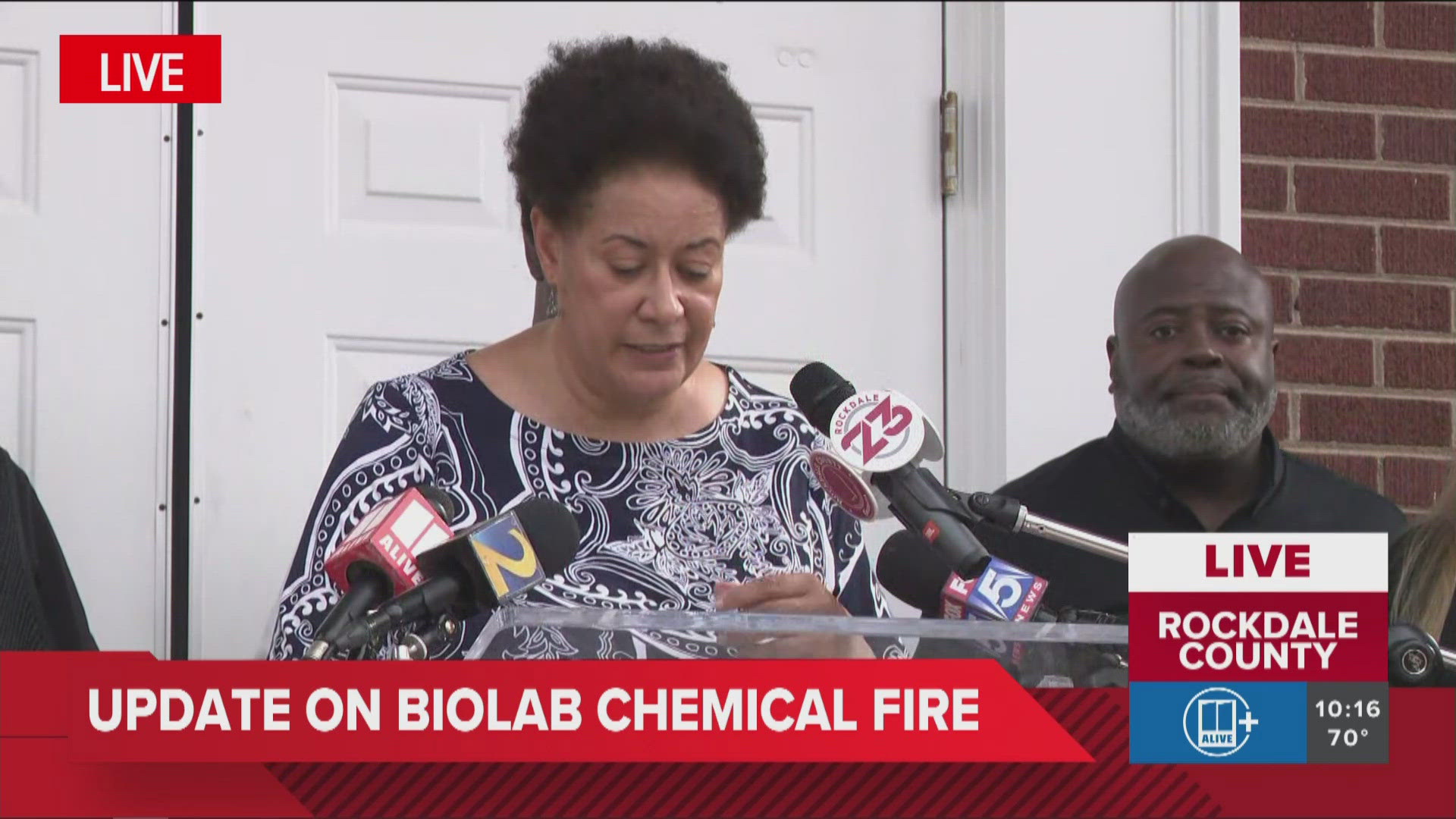CONYERS, Ga. — Residents in Rockdale County are currently dealing with the fallout from a chemical plume that spread to much of the area after a fire at a BioLab facility in Conyers on Tuesday.
Dr. Lynn Paxton, the interim director for the Gwinnett Newton Rockdale Health District, spoke Tuesday morning about the possible symptoms those exposed to the chemicals might encounter and the next steps those individuals should take.
What are the possible medical effects?
Dr. Paxton stated that the chemicals in the plume can irritate the skin, eyes, nasal passages, and even the respiratory system.
However, she noted that those with preexisting conditions in these areas are the ones most likely to experience effects.
What can I do?
Dr. Paxton recommends that residents limit their exposure to the chemicals by staying indoors and keeping windows and doors closed. If you have an AC system that pulls in air from outdoors, it's recommended to turn that off. But, if your system just recirculates the air indoors, Paxton says you should be fine.
I have all these N-95 masks from the pandemic, can I use those?
Unfortunately, Dr. Paxton says those masks won't be of much help. According to her, the chlorine compounds being released are smaller than the size filtered by the masks.
Are we in danger?
As alarming as the whole ordeal has been, Dr. Paxton did encourage some calm, noting that the levels of chemicals being reported today are lower than the levels typically recognized to cause symptoms.
She also reiterated that the level at which you can smell the chemicals is lower than the level that typically causes harm.
What if I want a second opinion?
Dr. Paxton said those experiencing severe symptoms should contact their primary care providers but that those with non-emergent (as in not an emergency) should contact Georgia Poison Center for more information.
There is also a number set up to discuss possible effects with poison center officials, 404-856-6252.

